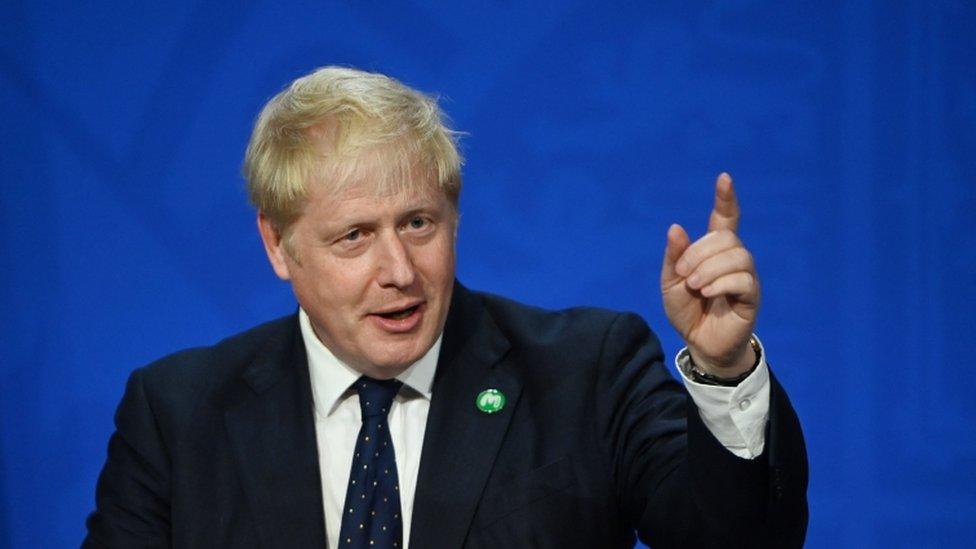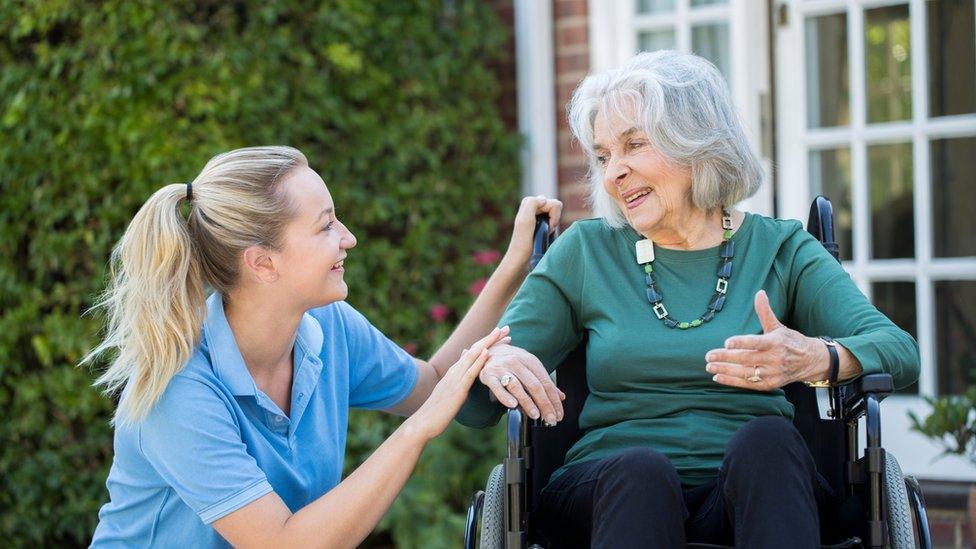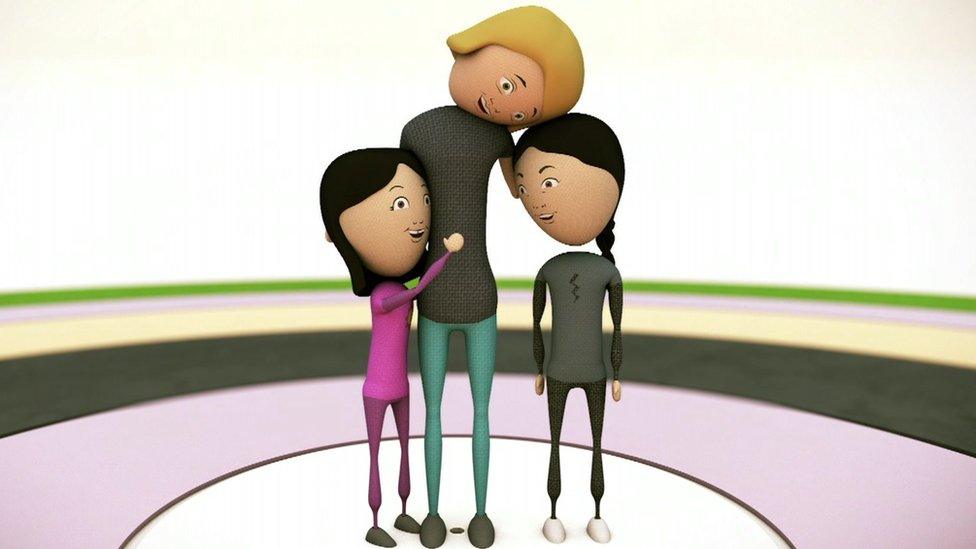What is social care? And what is the new social care tax?
- Published
- comments

Prime Minister Boris Johnson has announced that a new tax will be introduced across the UK to help pay for social care and to help the NHS.
The new tax is being brought in to help generate more money after the Covid pandemic and aims to improve social care. Boris Johnson said it would raise £12 billion a year.
It means adults who work in jobs or are self-employed will pay more tax from April 2022 to help raise the money.
But what is social care? And who uses it? Find out more below.
What is social care?

Social care and support are services that provide practical help if someone has an illness or disability.
This could include help with things like washing, getting dressed, providing meals to your home or having long-term nursing support.
If people are still able to live at home, this can be carried out there, with carers coming in to see them. Or people can be looked after in care homes, which provide food, accommodations and care services.
Who pays for social care?

In England, social care and support is funded differently to the NHS.
The NHS is 'free at the point of use', which means people can be treated for free when they are unwell. This is funded by taxes adults pay to the government.
But social care is not free for everyone - it depends on how much money you have and how much help you need.
In England, local councils are responsible for providing social care and pay towards it too.
The money comes from a mixture of grants from the government and from what people pay in council tax.
The council might help with all or some of the costs depending on how much people can afford.
The person needing care is assessed to find out how much money and property they have and if this above a certain amount, then they will be expected to contribute towards the social care themselves.
Some services are free to everyone, such as equipment for your home and help after coming out of the hospital.
What are the issues with social care?

People are living longer, which means there are more elderly people who need care, which puts pressure on the system.
Social care is funded differently to the NHS because it is paid for by local councils and the individual or family needing the care.
Social care in England has always been 'means tested', which means it depends on how much a person can afford to pay towards the services themselves.
This has caused problems because it can be very expensive for councils to pay for.
The government hopes that the increases in taxes will mean more people will have access to paid social care, rather than having to use their own money.
What is the new tax?
Boris Johnson has introduced a new health and social care tax to help the NHS and social care in England.
Initially it will be taken from National Insurance which all workers pay, before becoming a separate health and social care tax introduced in 2023.
Mr Johnson said it would raise £36 billion for the NHS and social care over the next three years.

What have been the reactions to the new tax?
Some MPs have criticised the plan, because they believe it will mean younger workers have to fund the elderly and it doesn't take enough money from those who are wealthy.
Boris Johnson has also accepted that the tax breaks a promise he made during the last general election.
Mr Johnson's Conservative party said they wouldn't raise taxes in their manifesto.
The Prime Minister said no government wanted to raise taxes but he defended the decision as "the right, reasonable and fair approach" following the Covid pandemic.
A manifesto is a list of a party's ideas and policies, outlining what it will do if it wins the election.
Labour leader, Sir Keir Starmer, has said the plan was a "sticking plaster" over the social care problem.
Leaders in social care said this money was "nowhere near enough" and does not fix the current problems in this sector.
MPs will vote on these new proposals in the Commons on Wednesday.
What about Northern Ireland, Scotland and Wales?
The new UK-wide tax will be focused on funding health and social care in England, but Scotland, Wales and Northern Ireland will receive an additional £2.2 billion to spend on their services.
Each nation looks after their social care differently.
- Published5 July 2023

- Published13 October 2020

- Published5 February 2019

